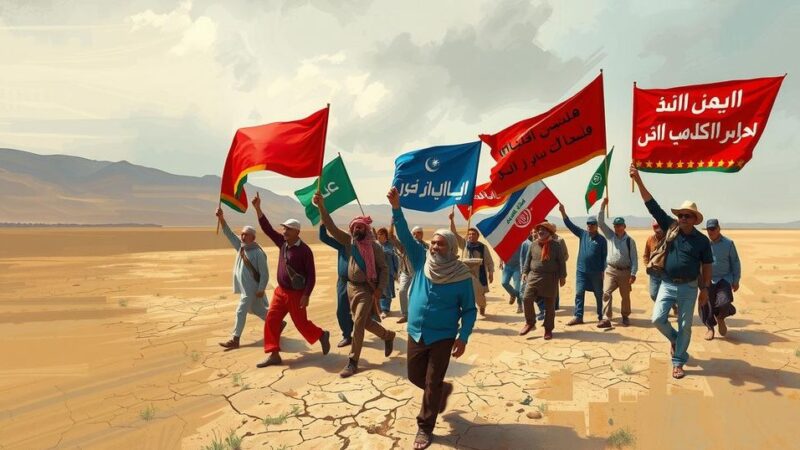The Jerando case illustrates the misuse of social media to promote anti-Morocco sentiments through unverified claims. Hicham Jerando, a Moroccan YouTuber, shifted his narrative from entrepreneurship to conspiracy theories about Morocco’s monarchy. His alleged defamation campaigns led to legal troubles for his family, while supporting narratives emerged from Algerian sources, further complicating the political landscape.
The Jerando case highlights the complexities of social media discourse, especially concerning human rights issues. Various actors, including governments and organizations, often choose to leverage sensational narratives that may detract from urgent global crises such as the plight of irregular migrants or ongoing genocides. Instead, they focus on dubious claims made by individuals like Hicham Jerando, a Moroccan YouTuber based in Canada, who has transitioned from a conversation about entrepreneurship to disseminating conspiracy theories about Morocco and its monarchy.
Jerando’s YouTube channel, boasting over 727,000 subscribers, gained attention for its provocative content. His recent videos have garnered massive viewership, with one video alone attracting over 126,000 views. Within this video, Jerando alleged grave threats to Morocco’s stability, including claims of a silent coup against King Mohammed VI and an imminent danger to Crown Prince Moulay El Hassan. Such allegations stirred significant backlash among audiences, highlighting a growing concern over incitement and potential violence.
Further complicating matters, Jerando’s family members faced legal troubles resulting in their arrest on charges related to involvement in organized cybercrime activities. This event has drawn considerable media attention, with allegations that the suspects, including Jerando’s sister, were involved in making false claims to defame others. Moreover, it was revealed that a minor associated with this case was held in a child protection facility rather than a prison, contradicting various misinformation narratives.
The Moroccan media has expressed skepticism towards Jerando’s self-proclaimed anti-corruption platform, pointing to a contradiction between his alleged integrity and personal actions. Reports indicate that Jerando has sought favorable treatment for a relative attempting to gain entry into medical school, despite his purported commitment against corruption. This emerging narrative demonstrates how social media can be exploited, with Jerando leveraging conspiracy theories to captivate his audience while simultaneously facing potential legal repercussions.
Jerando has found support among anti-Morocco factions, specifically in Algeria, where his claims are often amplified by troll accounts known as “electronic flies.” These narratives serve to undermine Morocco’s stability and credibility, particularly in light of the political tensions surrounding the Western Sahara region. The allegations surrounding Jerando have been seized upon by Algerian media, which uncritically disseminates claims aimed at discrediting Morocco, further complicating the ongoing geopolitical discourse between the two nations.
In summary, the Jerando case exemplifies the intersection of social media influence and geopolitical tensions, where deceptive rhetoric is utilized to distract from urgent humanitarian issues. Jerando’s evolution from a consultant to a conspiracy theorist illustrates the pitfalls of unverified information propagated through social media channels. The involvement of his family members in legal issues further complicates the narrative, attracting scrutiny from various media outlets. The ramifications of such cases demonstrate the ongoing struggle for credible discourse in the face of sensationalism and manipulation, particularly concerning relations between Morocco and Algeria.
Original Source: www.moroccoworldnews.com






